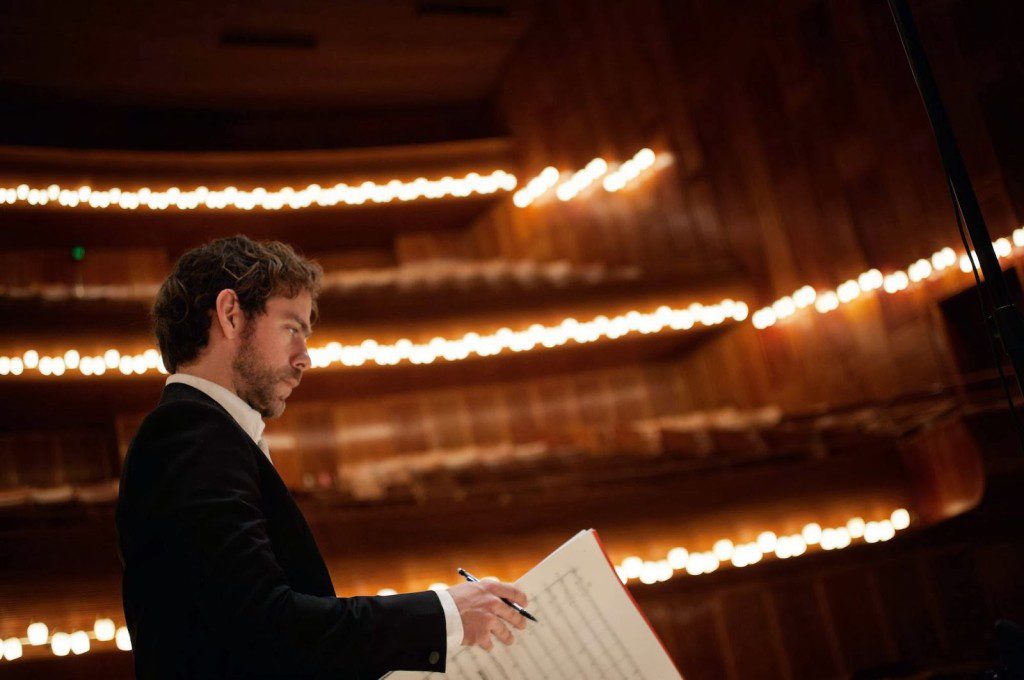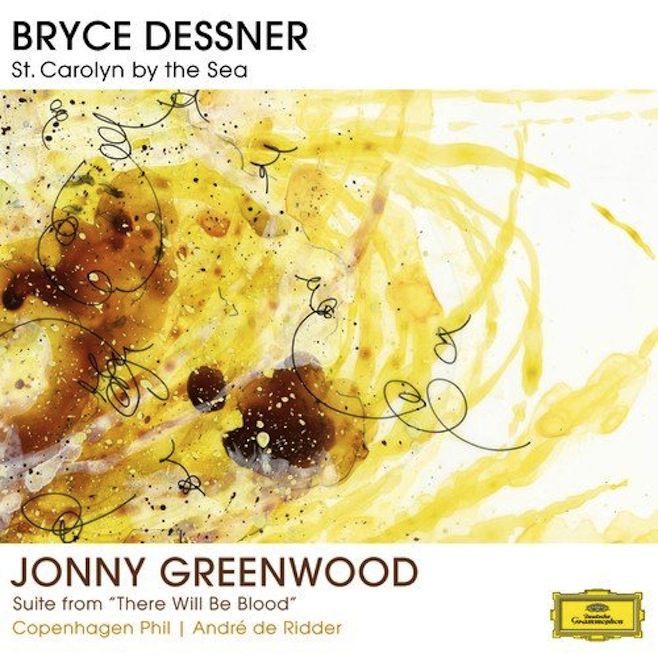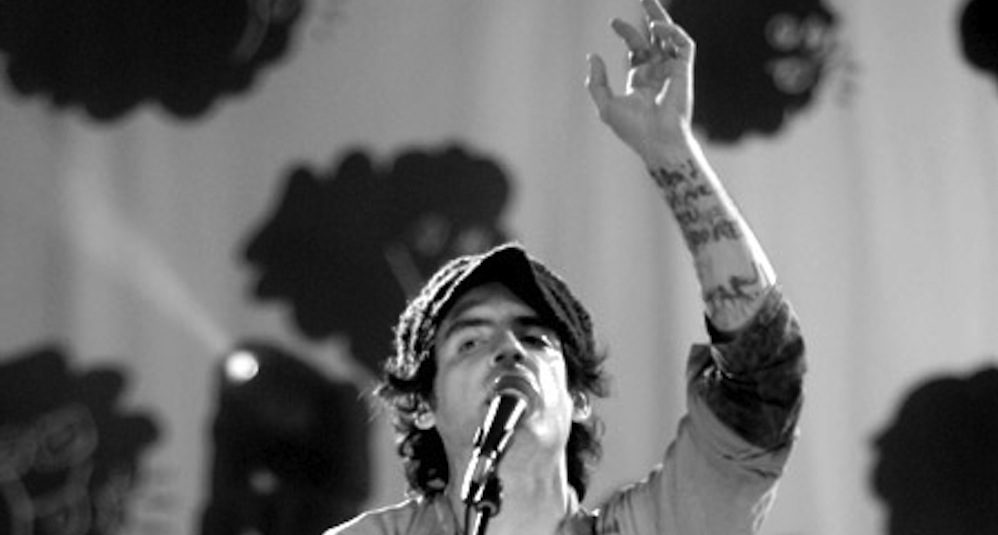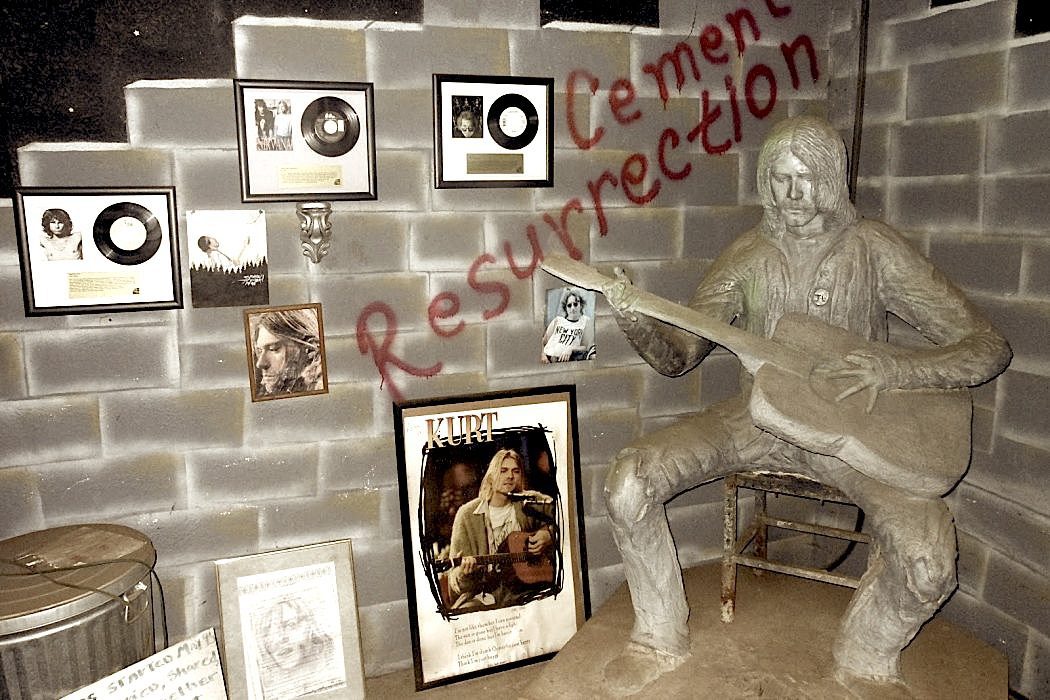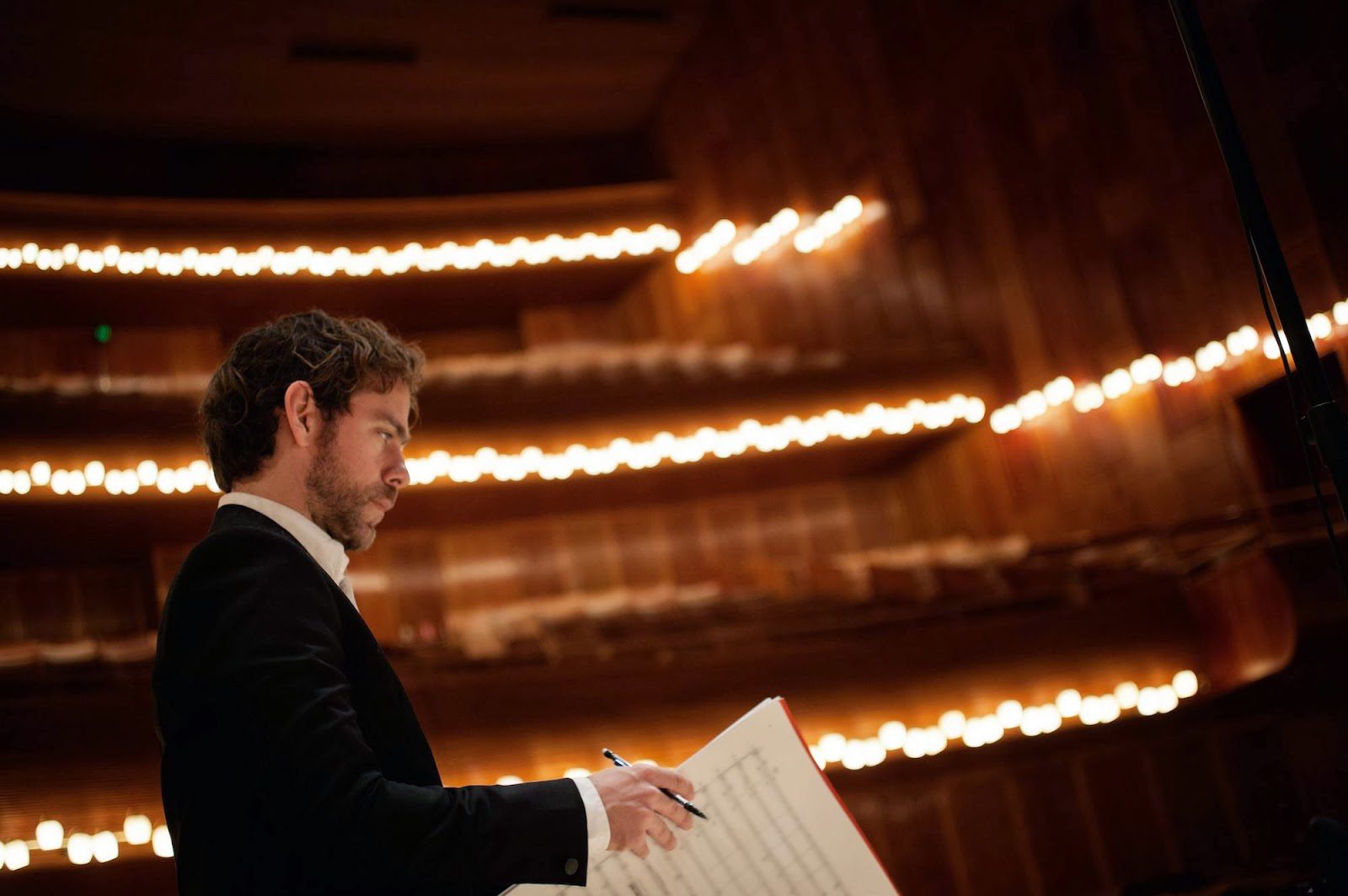
Most people know Bryce Dessner and Jonny Greenwood as members of The National and Radiohead, respectively (they both play lead guitar). But outside of their work with two of the most respected rock bands currently around, both Dessner and Greenwood have a background in classical music—Dessner received his music masters at Yale, and Greenwood gave up his music degree at Oxford Brookes University when Radiohead was signed. Both musicians are currently working as composers in residence, Dessner with Dutch orchestra Muziekgebouw Eindhoven and Greenwood with the BBC Concert Orchestra.
Those similarities seem like enough justification to pair the two on this nine track release by Deutsche Grammophon—three of the tracks are Dessner’s compositions from over the past few years, while the other six are Greenwood’s original score for 2007’s There Will Be Blood—but Copenhagen Philharmonic conductor André de Ridder brought the two composers together for stylistic and thematic reasons, which are easy to pick up on after a few listens through the album. The two composers share a penchant for high contrast—dark, deep tones and textures are often juxtaposed with softer, prettier ones—and a knack for depicting a sort of vast musical landscape.
Greenwood’s score, though, has been available for quite some time to the public and is probably familiar territory to fans of his growing soundtrack repertoire (he’s composed the score for four other movies in addition to Blood). The six tracks included on this release, “Open Space” in particular, exhibit an influence from scoring masters like John Williams with the use recurring musical motifs. Greenwood’s work expertly renders original interpretations of emotions that could easily come off as trite; “Henry Plainview,” for example, is a lush piece that explores a kind of sadness and despair, and shows how ugly emotions can be portrayed gorgeously. “Oil” also reveals great sensibility and a certain beauty, with a theme that brings to mind a long journey coming to its end, or the relief that comes with reaching one’s destination.
Dessner’s compositions, on the other hand, are fully fleshed out pieces that range from 13 to 17 minutes long. All three tracks build up slowly but with great intent, saturating moments of stillness with an uneasy tension. “St. Carolyn by the Sea” starts off rather sparse, but Dessner injects the song’s tranquility with moments of acute emotion—trembling violins, thundering horns—that give it an overall feeling of anxiety. The use of electric guitar is particularly noticeable in this track, which features Bryce’s twin brother and fellow National cohort, Aaron Dessner. Later on in “Raphael,” backdrop of low grumbles and droney sounds give a sense that something lurks in the distance, but the menacing beginning gives way to a beautiful and sparkling build up of instruments and emotions. Its ending feels like the calm after a storm.
The album is an overall testimony to contemporary classical music being alive and well. Deutsche Grammophon is a label with an impressive reputation in the classical world, and the association with their business alone signals Dessner and Greenwood’s abilities, but the two composers’ extraordinary abilities speak for themselves. Catch a live performance of these tracks, conducted by André de Ridder, this Friday at Le Poisson Rouge.

